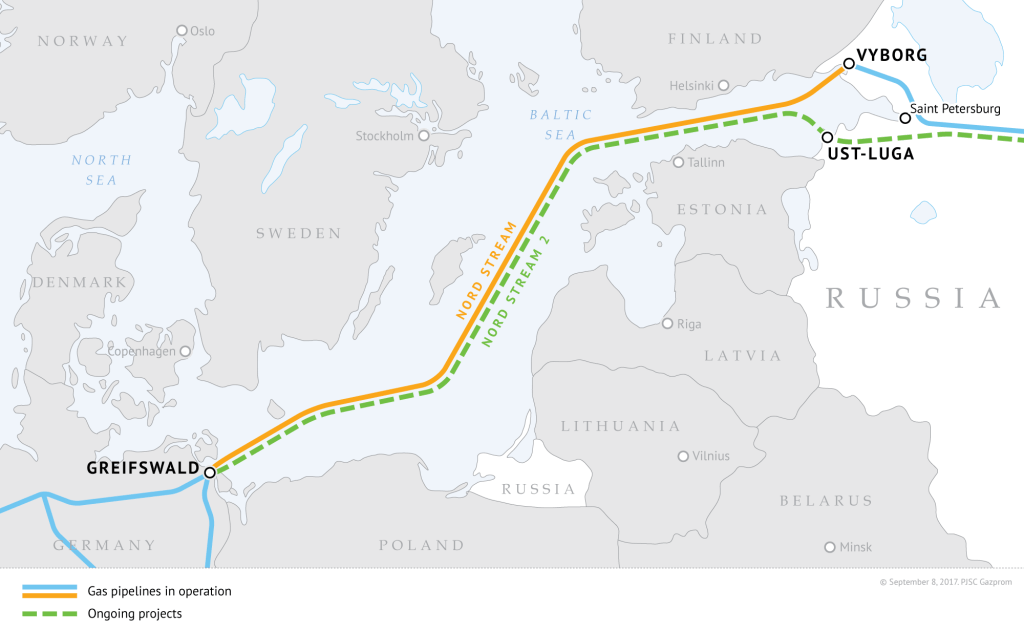Author: Vitaly Portnikov
The German tabloid Bild informed its readers about the decision by the Bundestag’s ruling coalition to change the rules for the operation of the not-yet-completed Nord Stream 2 gas pipeline.
According to European law, this gas pipeline is subject to the new EU gas directive. It means that Russia’s Gazprom cannot be the owner of the gas pipeline and the seller of gas it transports at the same time. And this, in turn, would reduce the volumes of Russian gas that can be transported via Nord Stream 2.
This new gas directive of the European Union does not apply to pipelines that were built before May 23, 2019. Despite all Russia’s efforts to complete the pipeline’s construction by that date, Nord Stream 2 is still unfinished. Importantly, many political commentators believe that the EU’s desire to bring Nord Stream 2 under jurisdiction of the new directive was behind the delay in issuing the permission to build the gas pipeline through Danish territorial waters.
However, in amendments to the bill on ratification of the updated gas directive, the ruling coalition in Germany actually abandons the May 23, 2019 cutoff and replaces it with the phrase “existing investments.” Simply put, this would serve to exclude from the scope of the EU gas directive not only already constructed pipelines, but also ones currently under construction. Although it is clear now that such an approach can lead to a serious conflict between Berlin and the European Commission, as it obviously calls into question the very essence of the gas directive.
And here a simple question arises: Why is the German government doing this? What is its reason for creating this conflict? Why is it trying to introduce preferences for Russia’s Gazprom contrary to the European law?

And the answer to this question, unfortunately, is simple. Despite all its declarations that gas transit through the Ukrainian gas transportation system should continue, Berlin is doing everything possible to eliminate the technical necessity for such transit. Instead, Berlin wants to replace it with a verbal agreement between Angela Merkel and Vladimir Putin. That is, Berlin wants to replace it with a vacuum.
If Nord Stream 2 remains subject to European law, then to transport all of its gas to Europe, Gazprom will need to secure capacity in addition to the new pipeline. And, if, for example, Gazprom decides to stop transporting its gas through Ukraine, then Europe will not have to freeze in winter, as it will be able to receive gas from other suppliers, and Ukraine will be able to get gas it requires too by transporting it from Europe using its system in reverse. Only Gazprom will lose in this scenario.
If these German efforts to change the EU law succeed, Gazprom‘s gas transit via the Ukrainian gas transportation system could end as early as next year. Or maybe a year later – after Russia “proves” to Europeans that Ukraine is an unreliable partner [by another round of its provocation and disinformation campaign].
Thus, the hands of the Kremlin will be untied – both for blackmailing Europe and for its war in Ukraine. Russia’s interest in changing the European law is understandable.
It is only not clear why Germany is interested in it.


